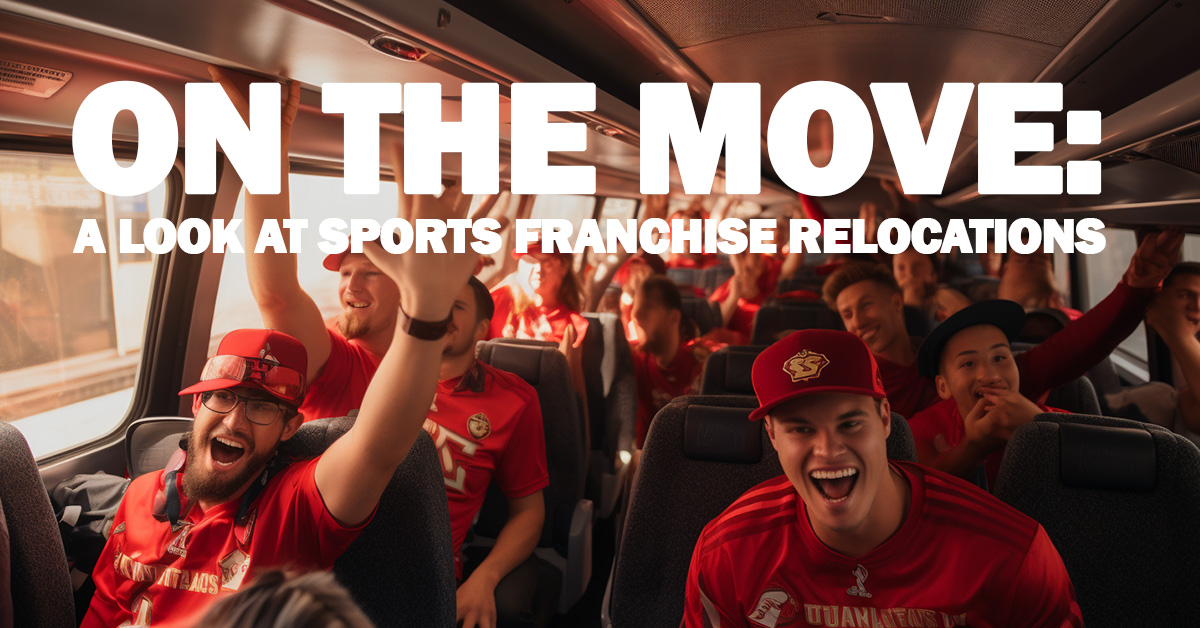On The Move: A Look at Sports Franchise Relocations

On The Move: A Look at Sports Franchise Relocations
In the world of professional sports, the phrase “location, location, location” carries immense weight. Teams often thrive in cities that embrace them, creating a vibrant fan base and contributing to the local economy. However, sometimes, circumstances change, and teams find themselves seeking new pastures.
The relocation of sports franchises is not a new phenomenon. Over the years, numerous teams have uprooted themselves from their original homes and ventured into unfamiliar territory. These relocations are often driven by a combination of factors, including financial considerations, stadium availability, and a desire to expand into new markets.
The NBA: A League in Motion
The National Basketball Association (NBA) has a rich history of franchise relocations. Some of the most notable examples include:
- The Fort Wayne Pistons: In 1957, the Fort Wayne Pistons relocated to Detroit, where they remain today.
- The Minneapolis Lakers: The Minneapolis Lakers, a dominant force in the NBA’s early years, moved to Los Angeles in 1960.
- The Philadelphia Warriors: In 1962, the Philadelphia Warriors relocated to San Francisco and became the San Francisco Warriors, later evolving into the Golden State Warriors.
- The Cincinnati Royals: The Cincinnati Royals, who played some of their home games in Cleveland, eventually moved to Kansas City in 1972 and became the Kansas City-Omaha Kings.
Major League Baseball: A Game of Change
Major League Baseball (MLB) has also witnessed its fair share of franchise relocations. Two of the most prominent examples are:
- The Brooklyn Dodgers and New York Giants: In 1958, both the Brooklyn Dodgers and the New York Giants relocated to California, becoming the Los Angeles Dodgers and the San Francisco Giants, respectively.
- The Washington Senators: In 1962, the Washington Senators moved to Minnesota and became the Minnesota Twins. In 1972, a new Washington Senators team was established, but it eventually moved to Texas in 1972 and became the Texas Rangers. More recently, in 2005, the Montreal Expos relocated to Washington and became the Washington Nationals.
The National Football League: A League on the Move
The National Football League (NFL) has perhaps seen the most extensive franchise relocations among the major professional sports leagues. Some of the most notable examples include:
- The Cleveland Rams: The Cleveland Rams moved to Los Angeles in 1946, then to St. Louis in 1995, and back to Los Angeles in 2016.
- The St. Louis Cardinals: The St. Louis Cardinals, who originally played in Chicago, moved to St. Louis in 1892.
- The Cleveland Browns: In 1996, the Cleveland Browns relocated to Baltimore, where they became the Baltimore Ravens. However, the league allowed Cleveland to retain the Browns name and colors, and a new Browns team was formed in 1999.
- The Houston Oilers: In 1997, the Houston Oilers moved to Memphis, Tennessee, and played one season there before moving to Nashville and becoming the Tennessee Titans.
The Impact of Relocations
Sports franchise relocations can have a significant impact on the cities involved. For the city losing a team, it can mean a loss of revenue, cultural identity, and civic pride. For the city gaining a team, it can mean an economic boost, increased tourism, and a sense of excitement and rejuvenation.
The relocation of sports franchises is a complex issue with no easy answers. It is a decision that often involves a delicate balance of financial considerations, fan sentiment, and political maneuvering. While it can be heartbreaking for fans to see their beloved teams depart, relocations can also open up new opportunities for growth and revitalization.









